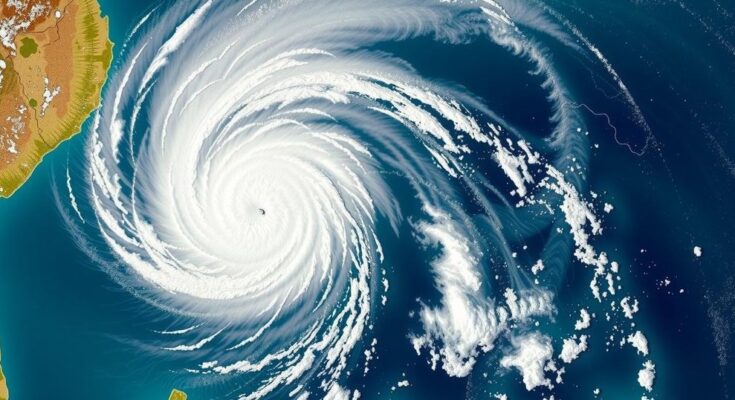Tropical Cyclone Chido has caused significant destruction in Mozambique, impacting over 453,000 people, leading to 120 fatalities, and massive infrastructure damage. The crisis is exacerbated by a cholera outbreak and ongoing humanitarian challenges. Urgent assistance is required, particularly in shelter, healthcare, and agricultural recovery, with particular attention to the needs of vulnerable groups.
The communities in Mozambique are currently facing severe challenges due to the aftermath of Tropical Cyclone Chido, which made landfall on December 15, 2024, unleashing intense rain and winds. By December 24, reports indicated that 453,971 individuals were affected, with significant loss of life, injuries, and extensive damage to infrastructure including homes, schools, and health facilities. Particularly devastated were the districts in Cabo Delgado and Nampula Provinces, where efforts to provide urgent assistance are hampered by ongoing connectivity and access challenges. Cholera outbreaks have emerged, further complicating the emergency response which is already strained by existing crises in the region. Authorities continue to mobilize support, although the humanitarian needs far exceed available resources. There is an urgent requirement for temporary shelter, healthcare facilities, and agricultural support to aid recovery and ensure continued safety in the affected communities. Prioritizing protection and mental health support is essential to address the multifaceted challenges faced by displaced populations, especially women and children.
Tropical Cyclone Chido significantly impacted Mozambique, particularly in Cabo Delgado and Nampula Provinces, resulting in widespread devastation. The cyclone brought exceptional rainfall and violent winds leading to severe flooding, destruction of homes, and critical infrastructure. This disaster has compounded the existing humanitarian issues stemming from a drought, ongoing conflicts, and disease outbreaks in the region. The National Institute for Natural Disasters (INGD) has been coordinating assessments and response efforts, but the scale of the needs is unprecedented, necessitating immediate international support and resource mobilization.
In summary, the devastation caused by Tropical Cyclone Chido presents an urgent humanitarian crisis in Mozambique that requires immediate and coordinated action. The scale of destruction, coupled with existing vulnerabilities, necessitates increased funding for relief efforts, particularly in healthcare, shelter, and nutrition. It is crucial to prioritize the most vulnerable populations and address protection concerns while ensuring access to essential services and supplies. The situation calls for a comprehensive approach to mitigate long-term impacts and support recovery efforts.
Original Source: reliefweb.int




